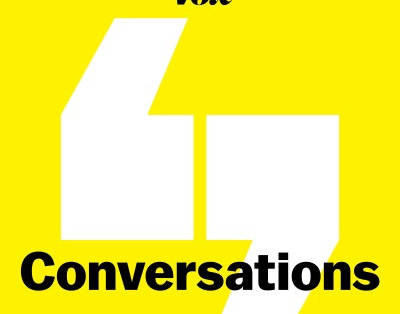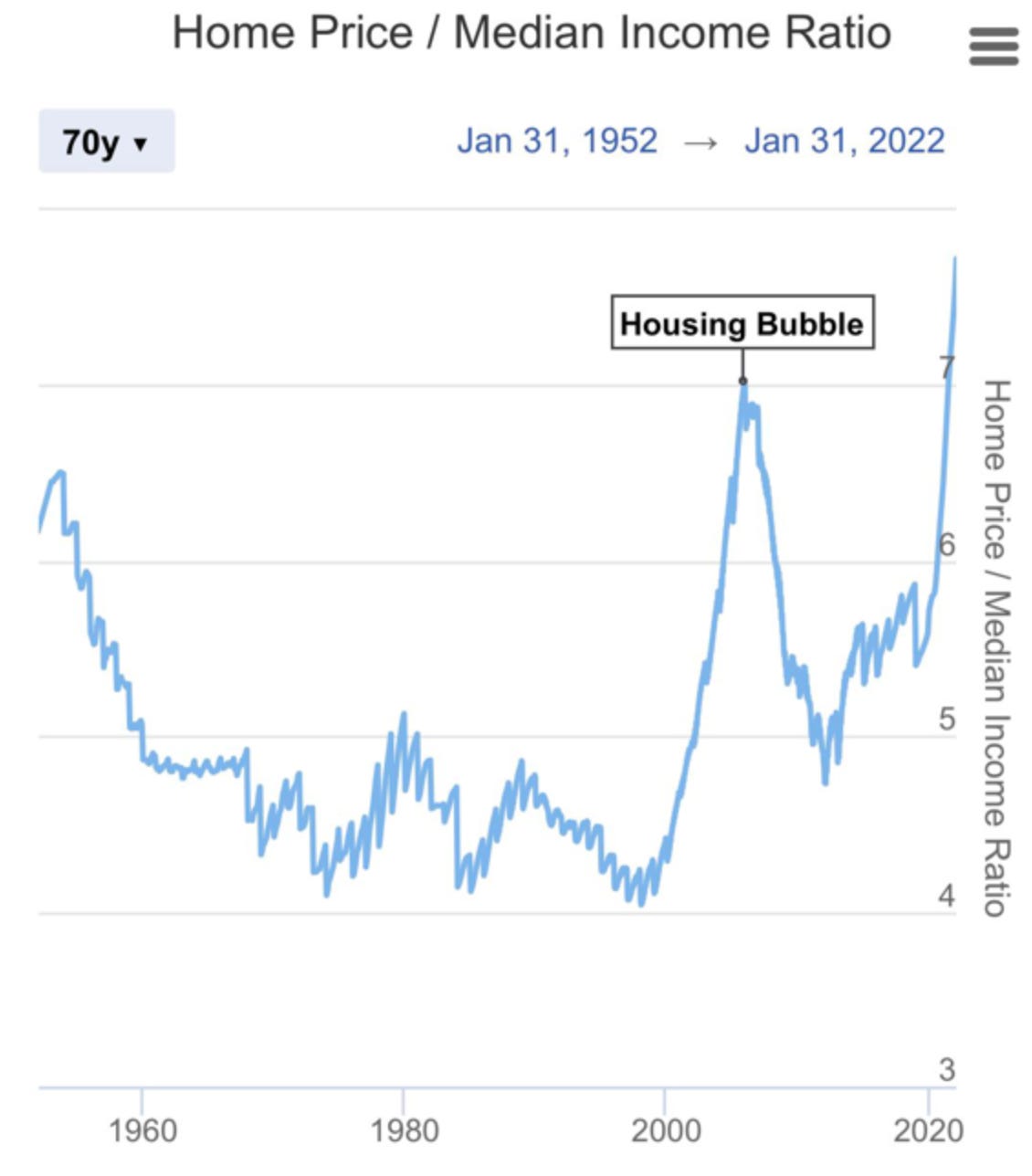FIRST: On Hannah Arendt, Modernity, & Fascism:
I am so much in the target demographic for Sean Illing’s new podcast series that it is not even funny:
Sean Illing: ’Hannah Arendt is truly an indispensable thinker and it was such fun to finally do this podcast on her legacy [with Lyndsey Stonebridge] <https://t.co/MUXHP821ZA>…


Back in the old days, almost everybody lived overwhelmingly in a social-network society. Who you were was overwhelmingly determined by what your social-network connections were. Overwhelmingly, you did not get to choose them yourself. And if you had none—well, then, you were a beggar, a penniless widow or orphan, or a “masterless man”, and it was quite likely your only chance for survival was to find some social-network position, usually one of very mean estate, and slot yourself into it. Often the social-network society was, to you, oppressive. But you were not lonely. And you did not have a choice as to who you would become, and how you were going to live your life. (Religion was sometimes a potential option, not that it allowed you escape from the social-network society, but rather that it allowed you to transform your place in it: starting from whatever-you-had-been, you could become part of the Cult of Isis, or of Bacchus, or of Mithras. You could become a Christian.)
Then, after 1500, there arrives Commercial Society. There is now the possibility that you can choose your own social network, and even survive if you have to exit from your old before you develop your new network. How? The market becomes not just a place for the trading of luxuries and surplus. The market becomes an arena in which you can, potentially, live your life and find work: as long as you deliver value for money, and as long as your last temporary employer will recommend you to your next such.
You can reinvent yourself.
Moreover, given that so many people found the social networks into which they were born and assigned oppressive, reinventing yourself—usually by moving to the city—becomes something that is semi-standard for people to do. They become modern, defined by Marshall Berman as “attempt[ing] to become subjects as well as objects of modernization, to get a grip on the modern world and make themselves at home in it…”
But do people want a society that does not require they stay in their fixed old but lets—or even forces—them to choose a new identity?
Berman says: often not. There is:
the widespread and often desperate fear of the freedom that modernity opens up for every individual, and the desire to escape from freedom (this was Erich Fromm’s apt phrase in 1941) by any means possible. This distinctively modern darkness was first mapped by Dostoevsky in his parable of the Grand Inquisitor (The Brothers Karamazov, 1881). “ Man prefers peace,” the Inquisitor says, “and even death, to freedom of choice in the knowledge of good and evil. There is nothing more seductive for man than his freedom of conscience, but nothing that is a greater cause of suffering.” He then steps out of his story, set in Counter-Reformation Seville, and directly addresses Dostoevsky’s late-nineteenth-century audience: “Look now, today, people are persuaded that they are freer than ever before, yet they have brought their freedom to us and laid it humbly at our feet.”
The Grand Inquisitor has cast a somber shadow over the politics of the twentieth century. So many demagogues and demagogic movements have won power and mass adoration by relieving the peoples they rule ofthe burden of freedom. (Iran’s current holy despot even looks like the Grand Inquisitor.) The Fascist regimes of 1922–1945 may turn out to be only a first chapter in the still unfolding histor y of radical authoritarianism. Many movements in this mold actually celebrate modern technology, communications and techniques of mass mobilization, and use them to crush modern freedoms. Some of these movements have won ardent support from great modernists: Ezra Pound, Heidegger, Celine. The paradoxes and perils in all this are dark and deep. It strikes me that an honest modernist needs to look longer and deeper into this abyss than I have done so far…
To this, I want to add this kicker:
Back in the era of Commercial Society—1500 to 1770, say—humanity’s technological prowess was still little more than glacial. The value of the stock of useful ideas about manipulating nature and organizing humans discovered, developed, deployed, and diffused throughout the human economy, grew at roughly 5% per generation. Thus things in total when you were 50 were little different from what they had been when you were 25, which were little different from what they had been when you were born. You could, if you could manage it, easily slot yourself into a social-network place very similar to what your mother and father had been slotted into. You did not have to, you were not forced to, back in the Imperial-Commercial Revolution era, use your modernist freedom.
Things changed somewhat in the era of the British Industrial Revolution, 1770–1870. The ice cracked and broke. Then, if you were in the charmed circle of 300 miles around Dover, England (or in the English settler colonies), human technological prowess deployed and diffused grew by perhaps 25% per generation. (It grew by less than half that outside that charmed circle plus the dominions (and ex-dominion.)) That meant that many social-network places in society vanished. Andrew Carnegie’s grandfather was a fairly prosperous Scottish handloom weaver. Andrew Carnegie’s father tried to follow his footsteps, starved, and found himself forced to find a new place. So he migrated to America. For most, the modernist forging of your own identity was still optional. But not if your entire occupation was destroyed by the workings of the market impelled by technological change.
The edge was sharpest in textiles. Hence Heinrich Heine’s (Handloom) Weaver-Song:
Their gloom-enveloped eyes are tearless,
They sit at the spinning wheel, snarling cheerless:
"Germany, we weave your funeral shroud,
A threefold curse be within it endowed-
We're weaving, we're weaving!
A curse on God to whom we knelt
When hunger and winter's cold we felt,
To whom we flocked in vain and cried,
Who mocked us and poxed us and cast us aside,
We're weaving, we're weaving!
A curse on the king, the wealthy men's chief
Who was not moved even by our grief
Who wrenched the last coin from our hand of need,
And shot us, screaming like dogs in the street!
We're weaving, we're weaving!
A curse on this lying father-nation
Where thrive only shame and degradation,
Where every flower's plucked ere it's bloom
And worms thrive in the dank rot and gloom-
We're weaving, we're weaving!
O shuttle fly! Loom crank away!
We weave unfailing, night and day-
Old Germany, we weave your funeral shroud,
A threefold curse be within it endowed-
We're weaving, we're weaving!
Note that these are not industrial factory workers who are singing. These are those who wish things to stay as they were for them—as in their grandfathers’ day—and find that the technology-enabled global market economy will not allow it to be so.
And with 1870 there comes Modern Economic Growth and the roaring of the cataract. The value of the stock of useful ideas about manipulating nature and organizing humans discovered, developed, deployed, and diffused throughout the human economy doubles every single generation, and then doubles again in the next. By the time you are 50 is more likely than not that the occupation your father or mother had when you were born has vanished, or has at least been transformed utterly. As a result of the two or three waves of economic technology-driven creative-destruction you see over your life, you are free to choose your place in society, but you are definitely not free to choose that things just stay the same.
“Se vogliamo che tutto rimanga com’è bisogna che tutto cambi”—For everything to remain the same, everything must change—so says Tancred to his uncle in Giuseppe Tomasi di Lampedusa’s Il Gattopardo. “Alle Ständisch und Stehende verdampft”—all that is solid melts into air—or, I prefer “every established order and practice is steamed away”. So wrote, from their perches at the very edge of the Dover Circle, Charlie from Trier and Freddie from Barmen in 1848 in their Manifesto of the Communist Party. (And, remember, Marx and Engels were dealing with the Industrial Revolution-era 25% per generation rate of change, rather than the doubling every generation of the post–1870 Modern Economic Growth era’s rate.) Thus ”alles Heilige word entweiht, und die Meachen Sind endlich gezwungen, ihre Lebensstellung, ihre gegenseitingen Beziehundgen mit nüchternen Augen anzusehen"—all that is holy is profaned, and man is at last compelled to face with sober sense, his real conditions of life, and his relations with his kind
Or not. Humans might and sometimes do turn tail, and run as fast as they can away from their existentialist freedom that modernity forces upon them.
And so to: Sean Illing & Lyndsey Stonebridge: Hannah Arendt: The Philosopher Who Warned Us About Loneliness & Totalitarianism<https://www.vox.com/vox-conversations-podcast/23048597/vox-conversations-hannah-arendt-totalitarianism-the-philosophers>:
Lyndsey Stonebridge: ’It’s important not to separate loneliness from the material conditions that produce it. She’s talking about things like the disillusionment of people with the elites who are running Europe, unemployment, the end of the bourgeois dream, inflation…. [Arendt] understood loneliness as this peculiarly modern problem… that comes with individualism… capitalism… modernity… uprootedness…
Lyndsey Stonebridge: ‘What she sees everywhere she looks is that loneliness is the result of a lack of a common ground of experience. This is what she’s getting at when she writes, “The ideal subject of totalitarian rule is not the convinced Nazi or the convinced Communist, but people for whom the distinction between fact and fiction, in other words, the reality of experience, and the distinction between true and false … people for whom those distinctions no longer exist…”
Sean Illing: ’In her book on totalitarianism, Arendt talks about the emergence of “the masses,” which is distinct from what we might think of as classes or interest groups, because those are groups that are by definition fighting for some common interest. She’s talking about the rise of an “unorganized mass” of “mostly furious individuals” with nothing in common except for their contempt for the present order. She calls this “negative solidarity” and it’s the raw material of totalitarianism, because it’s a world without connection and friendship, where the only basis of collective action is some kind of awful combination of anger and desperation. How did the world get so lonely in the first place for her? Was it just the rise of capitalism and individualism?…
Lyndsey Stonebridge: ’[Arendt] says… that “the masses’ escape from reality is a verdict against the world in which they’re forced to live.” Often the question is, well, how can people be so stupid? How can anyone fall for this? That’s the wrong way to think about it. Totalitarian politics is a verdict against the world in which people are forced to live. It’s a slap in the face. It’s a finger up against the real conditions of existence…
Lyndsey Stonebridge: ’Starting with real anger… the creation of “the mass[es]” and it isn’t just fascism… [and] populism. This is totalitarianism proper…
Lyndsey Stonebridge: ’People aren’t stupid…. As important as loneliness is cynicism… [which] allows people to say, “They’re all the same, it’s all bullshit, isn’t it? It’s just politics, isn’t it?” What cynicism allows you to do is be gullible and disbelieving at the same time…
Lyndsey Stonebridge: ’[Arendt] would’ve thought… tragic was… being algorithmized into social media…. You don’t get… politics… sitting in rooms… trying to get something done….. What really would’ve appalled her today is the hemorrhaging of so much political energy…
References:
Marshall Berman (1982): All That Is Solid Melts Into Air: The Experience Of Modernity <https://libgen.rocks/ads.php?md5=0fca5a5dae5533f51d536485ffe9e297>
Heinrich Heine: The Weaver-Song <https://poetrypoem.com/cgi-bin/index.pl?poemnumber=190349&sitename=verseofapoet&poemoffset=0&displaypoem=t&item=poetry>
Sean Illing & Lyndsey Stonebridge: Hannah Arendt: The Philosopher Who Warned Us About Loneliness & Totalitarianism<https://www.vox.com/vox-conversations-podcast/23048597/vox-conversations-hannah-arendt-totalitarianism-the-philosophers>
Giuseppe Tomasi di Lampedusa: Il Gattopardo <https://en.wikipedia.org/wiki/The_Leopard>
Karl Marx & Friedrich Engels (1848): Manifesto of the Communist Party<https://www.marxists.org/archive/marx/works/download/pdf/Manifesto.pdf> <https://www.ibiblio.org/ml/libri/e/EngelsFMarxKH_ManifestKommunistischen_s.pdf>
One Image:
One Video:
Dwight D. Eisenhower (1961): Farewell Address <https://www.youtube.com/watch?v=jnaM8TqAzzo>:
Very Briefly Noted:
Nicholas Gruen: How Economics Found Science …& Lost Its Subject Matter<https://www.ineteconomics.org/perspectives/blog/how-economics-forgot-its-subject-matter>
Walter Scheidel: Roman Economic Performance & Inequality: In Defense of the Big Picture<https://zenodo.org/record/6320776#.Yna8SC-B1R9>
Andrew Cunningham: “Star Trek: Strange New Worlds” is Either Good or It’s Just so Comforting that I Don’t Care: ‘The latest Trek series plays it almost too safe, but it still feels right… <https://arstechnica.com/gaming/2022/05/star-trek-strange-new-worlds-is-either-good-or-its-just-so-comforting-that-i-dont-care/>
Scott Lemieux: The Ballad of Kathleen Parker: ’Republicans have long been working a double… assuring their base that their judges will overrule Roe… persuad[ing] gullible pro-choice suburbanites and Savvy pundits that no such thing would ever happen. The peak… was reached by Kathleen “Donald Trump winning will be just fine” Parker in 2018… <https://www.lawyersgunsmoneyblog.com/2022/05/the-ballad-of-kathleen-parker>
Shawn Donnan: Culture Wars Are Coming for the U.S. Economy <https://www.bloomberg.com/news/newsletters/2022-05-07/culture-wars-are-coming-for-the-u-s-economy-bloomberg-new-economy?cmpid=BBD050722_NEF>
Robert Jackson Bennett: If I’d Written the Prequels: ‘Anakin acting as… Lucifer… a scarred thing…. Like many who have been abused and lived lives of fear, he comes to respect the only thing that has dominated his life since he was a child—strength, power, and pain… <https://www.robertjacksonbennett.com/if-id-written-the-prequels>
Felicia Wong: Overview: Post-Neoliberalism at a Crossroads <https://democracyjournal.org/magazine/64/overview-post-neoliberalism-at-a-crossroads/>
Guy-Uriel Charles: Giving the People What They Want: Supplying the Demand for Disinformation <https://balkin.blogspot.com/2022/04/giving-people-what-they-want-supplying.html>
Chris Blattman & Dylan Matthews: Why Wars Start, & How To Prevent Them <https://www.vox.com/future-perfect/2022/4/28/23041726/chris-blattman-why-we-fight-war-peace>
Josh Marshall: Putting Together the Pieces on The Campaign to Stop Roberts https://talkingpointsmemo.com/edblog/putting-together-the-pieces-on-the-campaign-to-stop-roberts
Twitter & ‘Stack
Julia Davis: ’Senior military expert on Russian state TV argued that mobilization wouldn’t accomplish a whole lot, since outdated weaponry can’t easily compete with NATO-supplied weapons and equipment in Ukraine’s hands and replenishing Russia’s military arsenal will be neither fast nor easy <https://t.co/jzkU7RiZFz>…

>
Director’s Cut SUBSCRIBER ONLY CONTENT Below:
Keep reading with a 7-day free trial
Subscribe to Brad DeLong's Grasping Reality to keep reading this post and get 7 days of free access to the full post archives.








